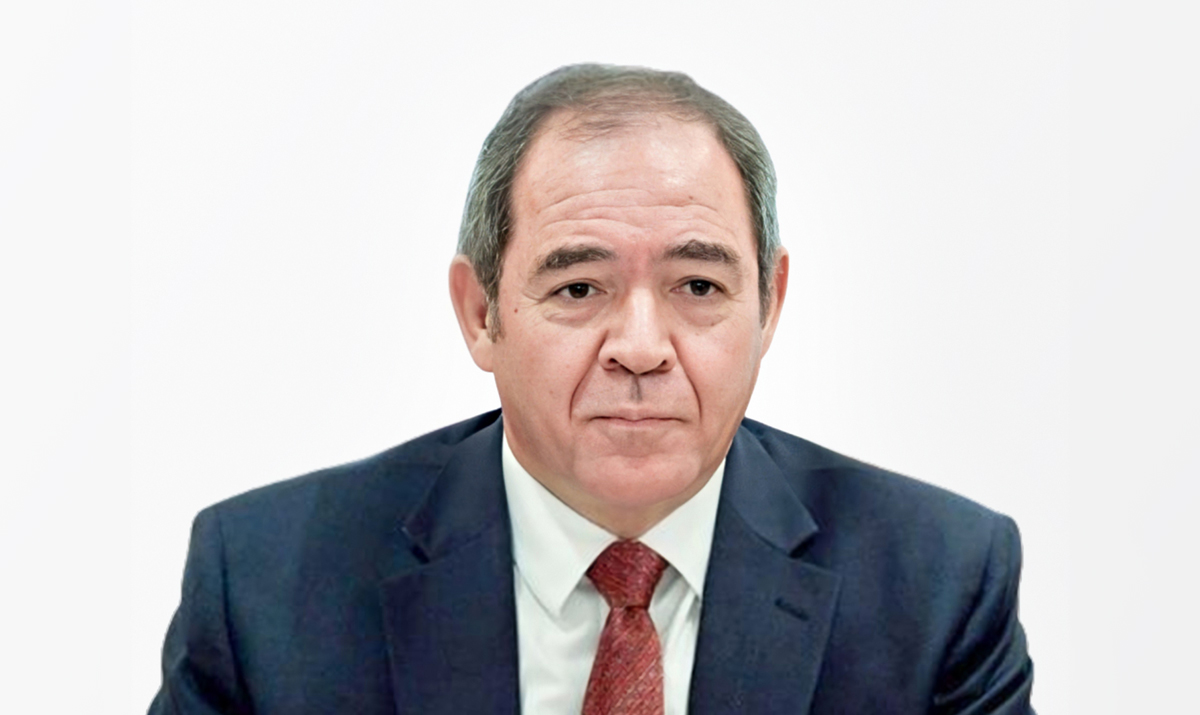
14 Feb Interview with H.E. Sabri Boukadoum, Chief of Mission Embassy of the People’s Democratic Republic of Algeria in Washington, D.C.
How do you assess the current global geopolitical scenario and its impact on Algeria? Do these changes present more opportunities or challenges for the country?
It is both a challenge and an opportunity. The essence of diplomacy is to ensure that we make them work together. The world is evolving rapidly, but as far as Algeria is concerned, we will continue engaging with the new U.S. administration. There have already been calls between the new U.S. Secretary of State, Marco Rubio, and our Minister of Foreign Affairs, Ahmed Attaf. I have had multiple discussions with the new administration regarding both present and future cooperation. We remain open and optimistic. Our goal is to strengthen bilateral relations and contribute to global security.
How does Algeria’s term as a non-permanent member of the UN Security Council (2024–2025) help advance its perspectives on global and regional challenges?
Algeria has been deeply engaged with the UN and the Security Council for many years. This is not our first time serving as a non-permanent member. I was part of the delegation during our previous tenure. Our approach is not to promote strictly Algerian interests but rather to advocate for stability and peace globally.
We were elected to the Security Council with the support of Africa, the Arab world, and the Islamic world, and we take that responsibility seriously. Being on the Council provides us with greater leverage to engage with the Permanent Five (P5) on critical issues.
One of our main priorities has been working to end the violence in Gaza and secure a ceasefire. We have been actively engaged, particularly with the United States, as well as all P5 members and the A3 (the three African members of the Council), to address the crisis in Gaza and the West Bank.
Beyond Gaza, we have also focused on the Sahel region. Last month, under Algeria’s presidency of the Security Council, we prioritized the issue of terrorism in the Sahel, aiming to mobilize the international community to find long-term solutions rather than temporary fixes.
Additionally, we remain focused on African issues, including the ongoing crises in the Democratic Republic of the Congo (DRC) and Sudan.
As Algeria’s Chief of Mission in Washington, D.C., what are your key priorities for 2025?
We recently signed a Memorandum of Understanding (MoU) with the U.S. Department of Defense through its African branch, AFRICOM. This agreement opens new avenues for cooperation. We already had strong collaboration, particularly in search and rescue operations and intelligence sharing, but our partnership also extends to security in the Sahel.
On the economic front, U.S. investments in Algeria are increasing, particularly in the energy sector. The U.S. has been a key partner in Algeria’s energy industry for over 60 years, and we are now seeing diversification beyond energy into sectors such as agriculture and renewable energy.
We have ongoing engagements in both Washington, D.C., and Algeria across various fields. Our calendar is full, and we are committed to fulfilling our strategic objectives. We remain optimistic about the future.
What key aspects of Algeria’s geopolitical role, economy, and investment opportunities would you highlight to enhance understanding and engagement?
Algeria is a land of opportunities due to its vast landmass—it is the largest country in Africa, the Arab world, and the Mediterranean region. We have a young population, abundant natural resources, and a wide range of investment opportunities.
Energy remains at the top of our investment priorities, but agriculture is also a growing sector. For instance, an Algerian private enterprise is currently importing 25,000 American cows, marking a significant step in agricultural collaboration.
One challenge we face is that Algeria is not widely recognized as a key investment destination, partly due to the impact of the “Black Decade” of terrorism in the 1990s. However, Algeria is now a safe country, and we are witnessing a rise in tourism. We are organizing visits for tour operators to experience Algeria firsthand so they can make informed decisions rather than relying on outdated perceptions.
In addition to energy and agriculture, there are significant investment opportunities in mining, particularly across the Sahara and northern Algeria. Many influential and wealthy investors are showing interest in the country.
From a cultural perspective, Algeria is a hidden gem. Whether you are Muslim or Catholic, you will find Algeria’s history fascinating. Few people know that Algeria has hundreds of historic sites, including Roman ruins—second only to Italy in number. Saint Augustine, one of the founding figures of the Catholic Church, was Algerian.
Economically, Algeria has historically been a major trade partner of the United States. Around 15 to 20 years ago, the U.S. was our top trade partner, with annual trade volumes of $18–20 billion. While U.S. domestic energy production has shifted trade balances, Algerian oil remains highly valued due to its lower sulfur content and superior quality, which commands a premium of $2–3 per barrel.
Beyond fossil fuels, Algeria is expanding into renewable energy. With 330 sunny days a year, the Sahara offers significant potential for solar energy. We are also investing in hydrogen as the fuel of the future and exploring the extraction of rare earth minerals.
Above all, Algeria has consistently upheld its commitments to energy security. Even during difficult periods, we never failed to supply our partners. As demand for Algerian energy grows, we remain committed to providing reliable and sustainable resources to Europe and beyond.
